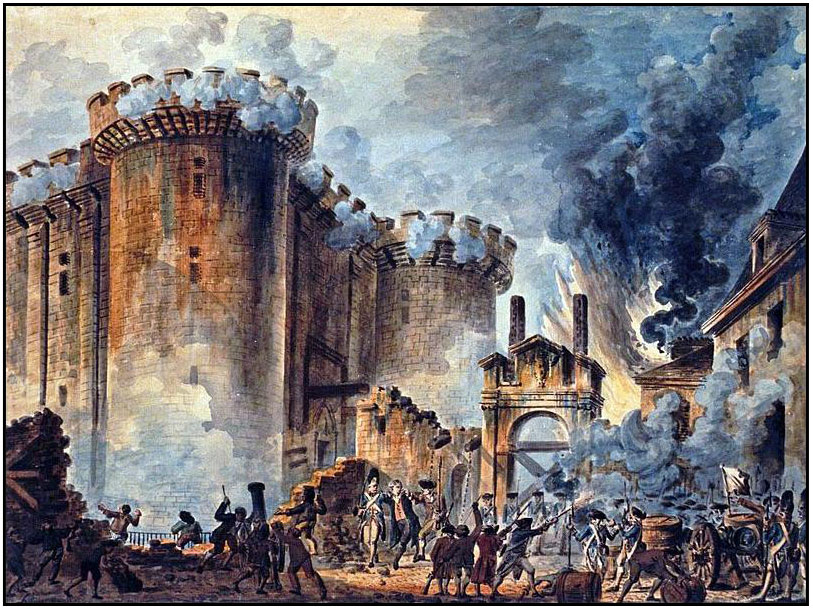The French
Revolution In 1787 Louis XVI summoned 140 leaders of the French aristocracy requesting that they consent to abandon some of their traditional fiscal privileges to help relieve the financial woes of the government. Instead of cooperating with the monarchy to which they owed their special status, the French notables hid behind legalisms and claimed that they had no right to do what their king wished them to do. The aristocrats who benefited most from the old regime were the first to undermine it - the French Revolution began as an aristocratic revolt. Dissatisfied with government of the people, by the king, for the aristocracy, the French nobles sought government of the people, by the aristocracy, for the aristocracy. Since the aristocrats controlled the first estate (the clergy) and the second estate (the nobility) they reasoned that they could out vote the third estate which represented the commoners. A revolutionary step then occurred. The members of the Third Estate refused to follow the old method of voting and declared themselves a national assembly (June, 1789). The Tennis Court Oath followed: members of the newly proclaimed Assembly swore that they would not disband until France had a written constitution "established and consolidated upon firm foundations." Louis XVI ordered the members of the first and second estates to vote with the third estate which legitimized it. Voting by head in the National Constituent Assembly meant the end of the aristocratic revolution and the beginning of the antiaristocratic revolution. The ordinary people in Paris would not tolerate an unwritten constitution. To save the national Constituent Assembly the revolutionaries stormed the Bastille on July 14, 1789. The capture of the Bastille came to symbolize French freedom, the end of monarchy and feudal system. Reforms of the
French Assembly The new French legislative body and government witnessed several revisions in the following years (The Convention, The Directory), but the beliefs in human dignity, equality, and fraternity became the fabric of French life. In this spirit the republicans abolished slavery in the French colonies as well as imprisonment for debt. They proclaimed their faith in free public education. They discouraged the use of aristocratic words like Madame (my lady) and Monsieur (my sir) and replaced them with Citoyene and Citoyen. They changed royalist names like Louis to good republican names like Benjamin and George. They reworked the calendar to get rid of its heritage of unreason, superstition, and tyranny. July (juillet) and August (aout), named after the despots Julius and Augustus Caesar, no longer were permitted to disgrace the French calendar. The founding of the Republic on September 22, 1792 is known as the first day of the first month of the Year I.
|
